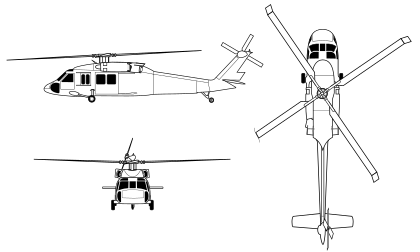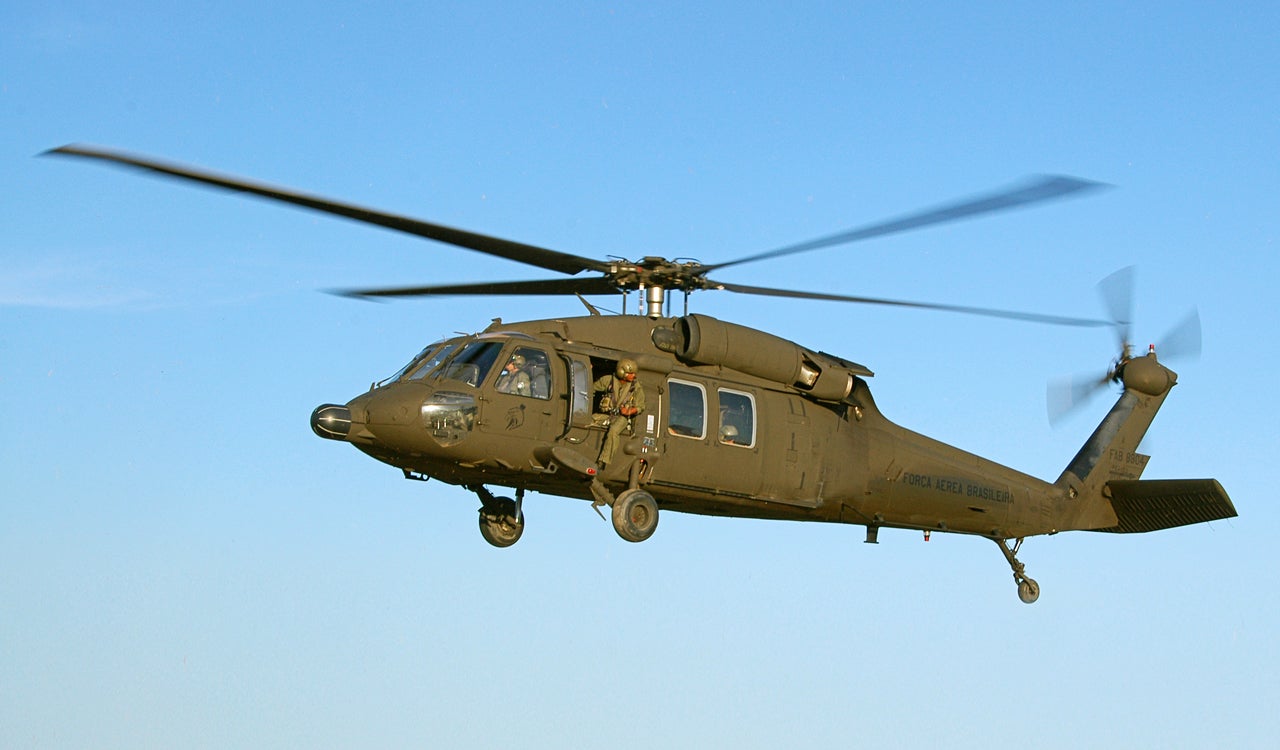UH 60 Technical Specifications and Performance Review
Wiki Article
The Influence of Sustainable Practices on the Future of Aircraft Workflow and Emissions Reduction
As the air travel sector deals with enhancing scrutiny over its ecological influence, the adoption of lasting techniques emerges as an essential path toward future airplane operations and exhausts decrease. Advancements in sustainable aeronautics fuels and advancements in crossbreed propulsion innovations stand at the center of this transformation, promising significant decreases in greenhouse gas discharges.
Summary of Sustainable Practices
Sustainable methods in airplane operations encompass a variety of methods focused on lowering ecological effect while maintaining functional efficiency. These techniques are essential in the air travel industry's commitment to minimizing its carbon footprint and adhering to worldwide environmental criteria. Key efforts consist of optimizing flight courses to decrease fuel usage, enhancing maintenance procedures to make sure aircraft run at peak efficiency, and applying innovative innovations such as winglets and light-weight products that improve aerodynamics.
Involving and educating team on sustainability practices likewise play a vital duty, fostering a society of ecological responsibility within organizations. Overall, the integration of these lasting techniques not just helps in reducing exhausts but likewise boosts the lasting viability of the air travel field, ensuring it meets the needs of both clients and regulative bodies while adding to global sustainability goals.
Innovative Gas Alternatives
Various ingenious gas choices are becoming pivotal remedies to lower the aviation industry's reliance on typical nonrenewable fuel sources. Among these options, Sustainable Aviation Gas (SAFs) have actually gotten substantial attention due to their prospective to lower lifecycle greenhouse gas discharges by approximately 80% compared to conventional jet fuels. SAFs are stemmed from various feedstocks, including waste oils, farming deposits, and also algae, making them a versatile option for the industry.One more promising alternative is hydrogen gas, which, when used in gas cells, produces only water vapor as a result. Furthermore, electrical propulsion systems are being explored, leveraging battery innovation to power airplane.
Finally, biofuels stemmed from biomass are being explored, supplying a sustainable option that can be blended with standard gas. Jointly, these ingenious fuel choices represent an essential action towards achieving a sustainable air travel environment, aligning with worldwide discharges decrease targets and boosting the industry's environmental stewardship.
Technical Developments in Air Travel

Exactly how can technological developments improve the future of air travel? Advancements such as hybrid and electric propulsion systems are at the forefront, promising considerable reductions in gas usage and greenhouse gas exhausts.
Additionally, the implementation of innovative materials, such as lightweight compounds, adds to enhanced aerodynamics and gas effectiveness. The usage of expert system and artificial intelligence in trip procedures maximizes route planning and decreases gas melt by making it possible for real-time modifications based upon weather and web traffic conditions. In addition, the advancement of autonomous and from another location piloted aircraft systems stands to revolutionize freight and traveler transportation, potentially raising performance while lessening human mistake.
Furthermore, sustainable aeronautics technologies, including advanced air web traffic monitoring systems, can lower and streamline operations congestion, leading to reduced emissions throughout flight. These advancements collectively stand for a paradigm change in aviation, assuring a future where sustainability and operational performance are linked, thereby sustaining the market's commitment to decreasing its environmental impact.

Regulatory Structure and Conformity
Taking into account the growing focus on environmental stewardship within the aeronautics market, the regulatory framework governing airplane procedures is advancing to advertise sustainable techniques. Governing bodies, such as the International Civil Aeronautics Company (ICAO) and different nationwide air travel authorities, are introducing strict guidelines targeted at minimizing discharges and enhancing operational efficiency.These guidelines commonly include the fostering of Sustainable Aviation Fuel (SAF), which has actually been recognized as a crucial component in attaining lower carbon footprints. Moreover, conformity with these laws requires airline companies to apply operational practices and sophisticated innovations, such as maximized flight courses and boosted air web traffic monitoring, to reduce gas intake.
In addition, the enforcement of exhausts trading systems and carbon countering campaigns is coming to be significantly common, compelling airline companies to keep track of and report their exhausts properly. Non-compliance can cause significant charges, thus pushing drivers to focus on sustainability in their service designs.
Inevitably, the advancing governing landscape not only drives innovation and investment in environment-friendly modern technologies yet additionally cultivates a culture of accountability within the aeronautics industry. As these structures remain to establish, the concentrate on sustainable techniques will be important to accomplishing the market's long-lasting environmental objectives.
Future Trends in Aircraft Procedures
As the air travel market adapts to a significantly strict governing setting, future trends in aircraft operations are readied to focus on cutting-edge options that even more enhance sustainability and performance - uh 60. Trick growths will likely consist of the fostering of innovative air website traffic management systems, which use real-time information and click resources expert system to maximize flight paths, minimizing fuel consumption and emissionsOne more significant pattern is the boosted combination of sustainable aviation fuels (SAFs) These choices to standard jet gas, originated from renewable sources, can significantly reduce lifecycle greenhouse gas discharges. The sector's commitment to SAFs will likely speed up as airlines work together with gas manufacturers to make sure accessibility and cost-effectiveness.
In addition, the press towards electrification and crossbreed propulsion systems is acquiring energy. Arising aircraft layouts will certainly integrate these innovations, using quieter and much more effective procedures, especially for short-haul flights.
Conclusion
Finally, the assimilation of sustainable techniques in airplane procedures holds considerable possibility for emissions decrease and enhanced effectiveness. The adoption of lasting air travel gas, paired with improvements in electric and hybrid propulsion systems, is vital for decreasing lifecycle greenhouse gas discharges. Moreover, optimizing flight courses and accepting ingenious technologies add to a quieter and more environmentally friendly aviation sector. Jointly, these initiatives line up with global sustainability goals and lead the way for a greener future in air travel.
Advancements in lasting aviation gas and innovations in crossbreed propulsion read this article modern technologies stand at the center of this makeover, appealing substantial reductions in greenhouse gas emissions.Numerous ingenious gas choices are emerging as critical go to my blog solutions to reduce the aeronautics market's dependence on standard fossil fuels - uh 60. Amongst these choices, Sustainable Aeronautics Gas (SAFs) have gotten significant interest due to their potential to decrease lifecycle greenhouse gas emissions by up to 80% compared to traditional jet fuels.Another considerable pattern is the enhanced integration of lasting air travel gas (SAFs) The adoption of sustainable air travel gas, coupled with innovations in hybrid and electric propulsion systems, is vital for lessening lifecycle greenhouse gas discharges
Report this wiki page